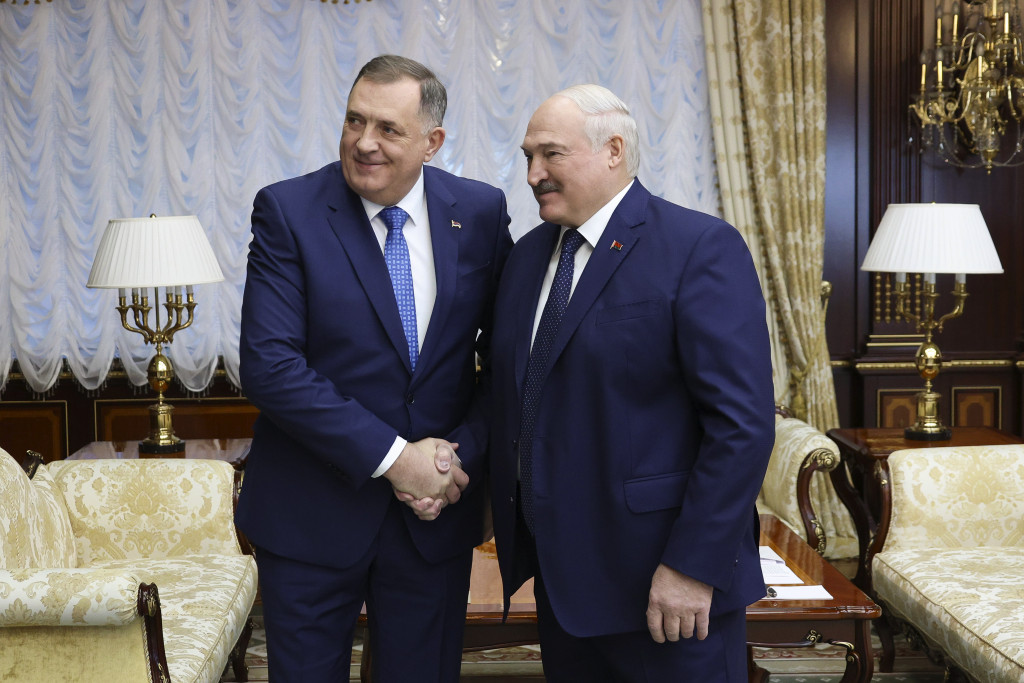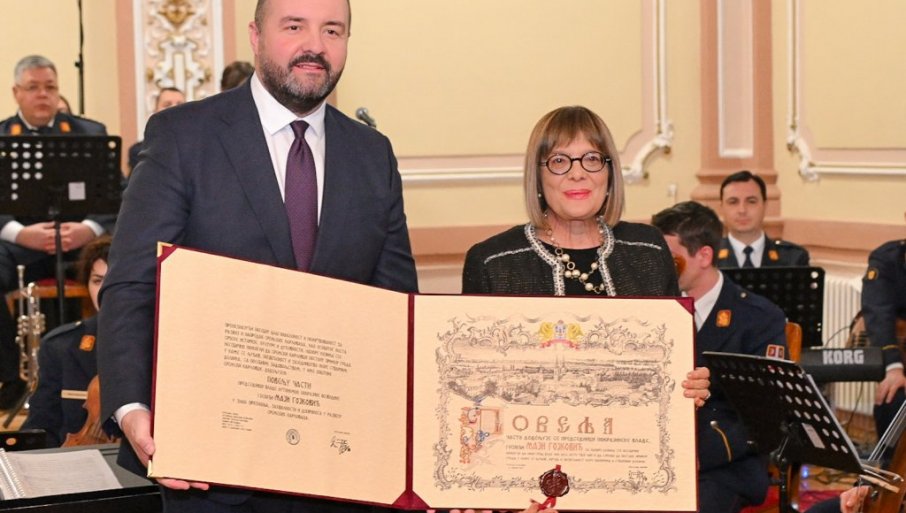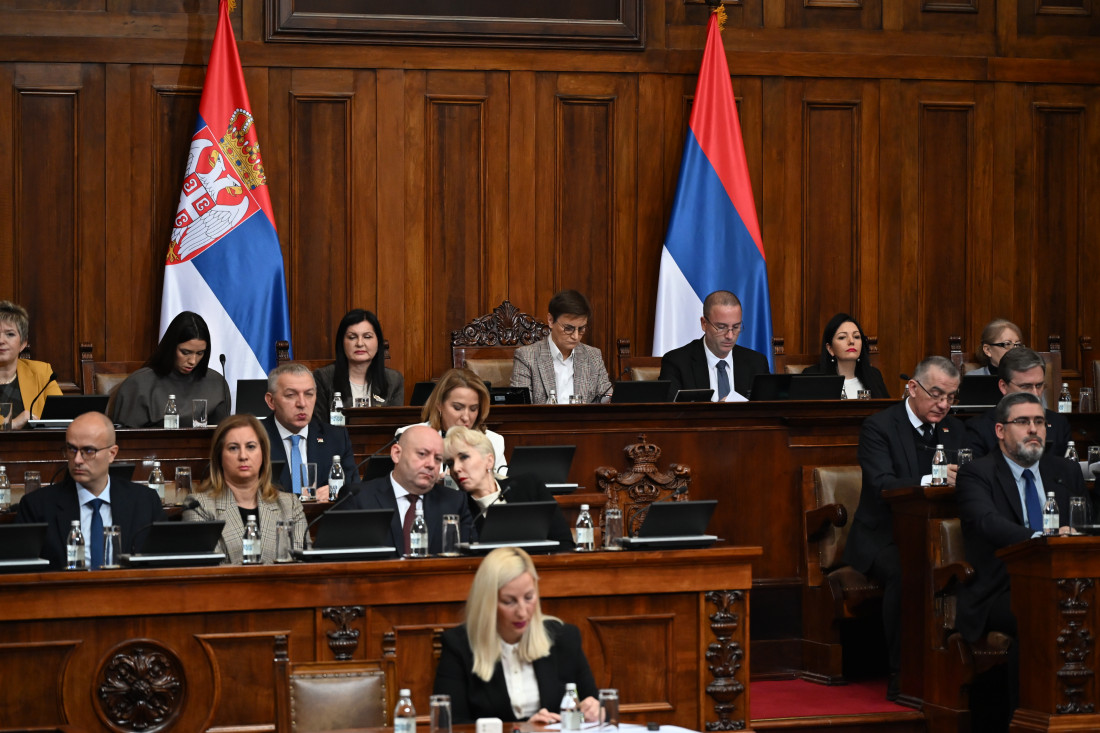Belarus Ministry of Foreign Affairs released a statement on September 30th detailing the Belorussian President Alexander Lukashenko’s support for the „consistent and courageous policy“ of the President of Republika Srpska Milorad Dodik, particularly for „firmly advocating the interests of the Orthodox people in BiH and the region,“ as reported by RTRS.
Lukashenko said, „Only perseverance, courage, and freedom can determine the future of a nation and a region, and that is exactly what I see in the president’s policy.“ Lukashenko noted a strong friendship with Dodik and assured that Belarus is prepared to always support Republika Srpska.
The Belorussian President expressed understanding of Republika Srpska and its political representatives who „endure the pressures of the collective West.“ Additionally, he mentioned, „We are closely monitoring the situation in the Balkans. You know my position in the most difficult times during the bombing, and you know my relationship with BiH. We know that it is not easy for you now, and unfortunately only strength means something today. Your power and courage mean a lot.“
Lukashenko urged Dodik to stand firm on the defense of the Orthodox people, stating, „We trust you, you can count on us.“
In response, Dodik emphasized the complex political situation in BiH and praised Lukashenko’s understanding and intention to help in practical situations. The two leaders agreed to continue working together in the future.
The delegation from Republika Srpska also had a meeting with the Prime Minister of Belarus, Roman Golovchenko. Additionally, during the visit to the Belarusian Academy of Sciences, they agreed to strengthen cooperation in the field of education.
The meeting between these two leaders has broader implications for the region, as it signifies a strengthening of relations between Belarus and Republika Srpska, as well as a potential shift in dynamics in the Balkan region. It highlights the solidarity and mutual support between leaders who face pressures from the West. The understanding of the complex political situation in BiH and the commitment to support the Orthodox population can have a significant impact on the balance of power in the region.
The collaboration between the two entities in the area of education also demonstrates a commitment to future generations and the development of human capital, showing the potential for fruitful cooperation in various fields.
The meeting is particularly significant at a time when geopolitical dynamics are rapidly changing in the region, and the support and solidarity between leaders from different countries indicate the potential for new alliances and partnerships. The support from Belarus also offers a lifeline to Republika Srpska, which has been under international pressure in recent years.
The alignment of interests and the pledge of support from Belarus have the potential to shape the political landscape in the Balkans and strengthen the position of Republika Srpska vis-a-vis the pressures it faces from the West. The meeting has laid the groundwork for future collaboration and cooperation between the two entities.
Overall, the meeting between Lukashenko and Dodik signifies a strengthening of bilateral relations and collaboration that can have significant implications for the region, highlighting the potential for new alliances and partnerships amid shifting geopolitical dynamics.




